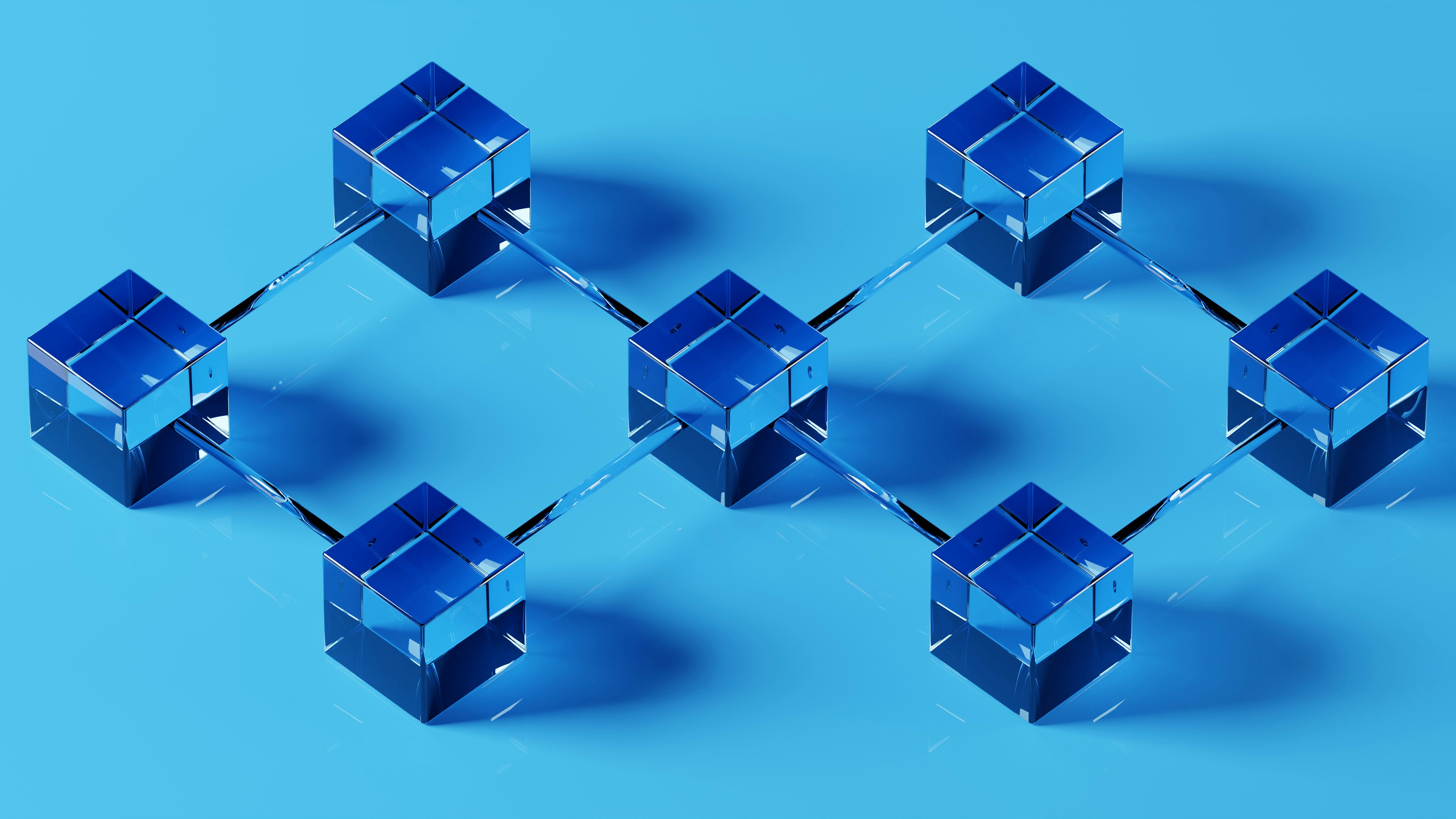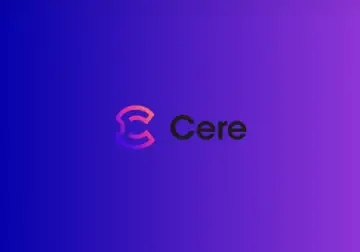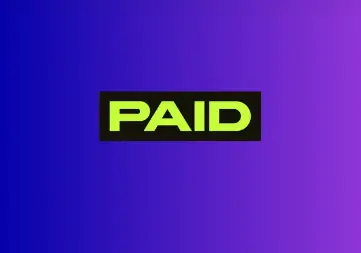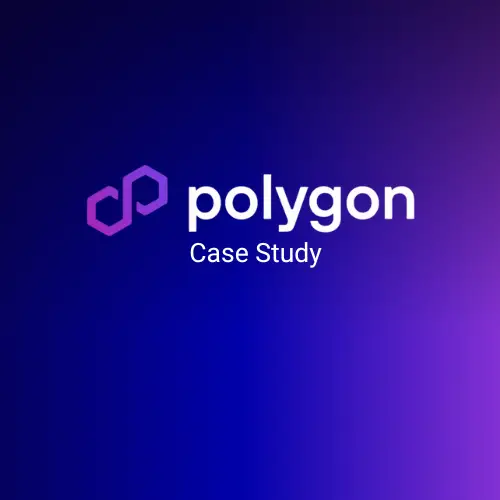How to Assess Candidates for Your Blockchain Developer Jobs
02 Dec, 202410 mins
As you may know, hiring blockchain developers is no small task. The stakes are high, with businesses increasingly turning to blockchain technology to solve complex problems, enhance efficiency, and gain a competitive edge. Whether you're a startup launching your first decentralised application (dApp) or an established company integrating blockchain into your operations, finding the right talent is crucial in such a competitive market.
But what makes someone the right fit for blockchain developer jobs? It’s all about finding candidates with unique skills, hands-on experience, and the ability to keep up with emerging trends and adapt to different markets.
In this guide, we will explore the importance of hiring the right talent, the key competencies to look for in candidates, and how to assess them effectively.
Let’s get started:
Why Hiring the Right Blockchain Developers Is Essential
Blockchain technology is shifting from being an emerging innovation to a business necessity. From financial services to supply chain management, industries are using blockchain for transparency, security, and decentralisation.
The Web3 & Crypto industry’s talent pool has grown at remarkable rates, but available candidates aren’t staying on the sidelines for long. In-house talent acquisition teams might manage high-volume hiring, but specialised positions often need expert attention. With job ads often attracting irrelevant applicants, finding the right candidate for critical positions remains challenging.
Why is finding the right Blockchain Developer important? :
- Innovate: It’s imperative your project successfully deploys on-chain, first time.
- Secure: These professionals have the skills to protect your business from the vulnerabilities of traditional systems.
- Lead: The right talent has the ability to drive your organisation’s blockchain initiatives with vision and expertise.
Without the right team in place now, businesses risk falling behind competitors who are already harnessing the power of blockchain. Ultimately, blockchain recruitment is a strategic move for building a future-proof team. So, being able to assess the right skills and experience becomes all the more important.
What Skills Do Blockchain Developers Need?
The blockchain sector is evolving, and hiring managers must broaden their search beyond traditional blockchain talent to meet growing demand. Bringing in skilled professionals from adjacent tech fields will likely become essential in the near future. But for now, identifying candidates with the right blend of technical expertise and sector experience is key.
Below are the fundamental skills you should look for in a successful blockchain developer:
1. Programming Languages: Core Blockchain Development
Proficiency in programming languages is a foundational requirement for blockchain developers. While most developers know how to code, blockchain projects often require specialised languages that aren’t as common in traditional software jobs.
Here are the key programming languages you should look for:
- Solidity: Vital for Ethereum-based smart contracts. Candidates who excel in Solidity can build efficient and secure decentralised applications.
- Rust: This high-performance language powers blockchains like Solana and Polkadot, making it a must for developers working on scalable solutions.
- Move: Originally developed by Meta for their Diem project, Move is now used by emerging Layer 1s such as Sui and Aptos, and demand is set to rocket in 2025.
- Go: Frequently used in enterprise blockchain platforms like Hyperledger Fabric.
Beyond knowing these languages, candidates should demonstrate an ability to apply them in practical scenarios. Those with experience in multiple languages often bring versatility, making them better equipped to tackle varied challenges.
2. Deep Knowledge of Cryptography
Cryptography lies at the heart of blockchain technology, ensuring data integrity and security. While it’s a niche skill, mastery of cryptography techniques distinguishes exceptional blockchain developers from the rest.
Blockchain developers should understand the following:
- Hashing algorithms (e.g., SHA-256), which are used to secure data.
- Public-private key encryption, which powers blockchain’s decentralised nature.
- Digital signatures for authenticating transactions.
- Zero-knowledge proofs that maintain privacy while verifying information.
Candidates who grasp cryptography will know how to prevent vulnerabilities like replay attacks or double-spending. This expertise is non-negotiable when hiring for blockchain developer jobs.
3. Smart Contract Development
Smart contracts are at the core of many blockchain applications, enabling automated, trustless transactions. Experienced candidate's able to develop and deploy secure smart contracts is a cornerstone of blockchain recruitment.
Experienced candidates will:
- Write strong, smart contracts on platforms like Ethereum or Binance Smart Chain. According to research, around 54% of blockchain developers are currently working on Ethereum projects, followed by 42% on Binance Smart Chain, highlighting its broad use in the sector.
- Use tools like Remix, Truffle, or Hardhat for deployment and testing.
- Prioritise security by understanding vulnerabilities such as reentrancy attacks or logic errors.
Developers skilled in smart contract creation can transform business processes, offering efficiency and trust without intermediaries.
4. Understanding Blockchain Data Structures and Frameworks
Not all blockchains are the same. Each framework or protocol serves different purposes, and understanding them is crucial for blockchain developers.
If you’re looking to hire blockchain developers who can make a difference, they should understand the following:
- Ethereum is a well-suited platform for public-facing decentralised applications (dApps).
- Hyperledger Fabric supports enterprise-grade private blockchains.
- Polkadot & Cosmos focus on blockchain interoperability.
- Solana is ideal for applications requiring high transaction throughput. According to research, Solana can process 710,000 transactions per second (TPS) without the need for further scaling solutions, making it a fundamental platform for blockchain developers.
Candidates familiar with these frameworks can tailor solutions to fit your business goals, ensuring compatibility and scalability.
5. Problem-Solving and Analytical Thinking
Blockchain developers often face unprecedented challenges, from scalability issues to designing interoperable systems. Strong problem-solving skills and analytical thinking are vital to navigating these complexities.
Look for candidates who:
- Approach problems methodically, breaking them into manageable components.
- Balance performance and security concerns when designing systems.
- Innovate under pressure, crafting creative solutions to unexpected hurdles.
Hiring developers with these traits ensures your blockchain initiatives can evolve alongside technological advancements.
6. Peer-to-Peer (P2P) Networks
Peer-to-peer networks are the backbone of blockchain technology, enabling its decentralised and secure nature. Unlike traditional client-server systems, P2P networks distribute data responsibilities evenly across all nodes, making them integral to blockchain success.
When assessing candidates, look for those who can:
- Configure nodes to support transaction validation and maintain network stability.
- Have a solid grasp of processes like Proof of Work (PoW) or Proof of Stake (PoS) is essential for ensuring agreement across a decentralised network.
- Able to identify the strengths and weaknesses of distributed and decentralised networks to optimise security and performance.
- Navigate Byzantine Fault Tolerance by designing systems that operate seamlessly even when some nodes fail or act maliciously.
7. Application Programming Interfaces (APIs)
APIs are the bridges that connect blockchain technology with external systems, making them indispensable for creating user-friendly applications and services.
Employers should seek developers with these capabilities:
- Whether for real-time data, wallet management, or analytics, developers should know how to use APIs to enhance functionality.
- Developers should be able to tailor APIs to allow businesses to address specific needs, offering unique features that set products apart.
- Professionals must be familiar with open-source APIs, which can save time and reduce costs while ensuring systems work well together.
- Developers must optimise APIs for performance while safeguarding against vulnerabilities.

Next Step: Assessing Blockchain Developer Skills
With the blockchain market predicted to grow at a compound annual growth rate (CAGR) of 87.7% from 2023 to 2030, making sure you have the right blockchain developers becomes all the more important as demand for talent grows.
Knowing what to look for in candidates is just the first step. Assessing their skills effectively ensures they’re the right fit for your team. An effective evaluation process is crucial to filter out applicants who may look good on paper but lack real-world capabilities.
1. Portfolio Review
A well-rounded portfolio speaks volumes about a developer's experience and ability to deliver results. Examine their past work for depth, relevance, and innovation. Reviewing a candidate's portfolio or repository contributions (GitHub, etc) is the best indication of whether you want to progress to the next stage and learn more about their experience.
Key areas to explore:
- Deployed smart contracts or dApps: Ask for live examples or detailed documentation of their projects.
- Contributions to open-source blockchain projects: Candidates involved in the broader blockchain community often demonstrate a passion for the field.
- Problem-solving narratives: Look for examples where they overcame technical challenges or improved efficiency in blockchain systems.
- Technical Problem-Solving: Check for examples where the candidate resolved significant challenges, optimised smart contracts, or improved system performance.
- Diverse Blockchain Frameworks: Look for experience with multiple frameworks, such as Ethereum, Solana, or Hyperledger Fabric, which indicates versatility.
- Security Implementation: Assess their understanding of blockchain vulnerabilities through examples where they implemented security measures in different blockchain developer jobs.
Request candidates to walk you through their portfolio during interviews. Their ability to explain their projects and articulate their problem-solving approach offers valuable insight into their expertise.
2. Conducting the Perfect Technical Interview
A well-planned technical interview is your chance to really understand a candidate's potential. It's not just about ticking off qualifications. It’s about seeing how people think, solve problems, and apply their skills in action. While resumes and portfolios can give you a snapshot, a technical interview dives deeper, offering a glimpse into how they’d handle real-world challenges within your team.
Here’s a breakdown of how to structure the process and what to focus on at each stage:
1. Initial Screening
The goal here is to assess if the candidate meets the basic qualifications and has a genuine interest in the role. After reviewing their portfolio, you’ll want to dive deeper into their experience and commitment to blockchain development early on.
Questions in this stage are typically high-level and focus on general experience:
- What’s your experience with programming languages such as Solidity or Rust?
- Can you describe a blockchain project you've worked on and more specifically your personal input?
- Why are you interested in blockchain, what excites you about the sector, and what projects are you following?
2. Knowledge-Based Questions
At this stage, you should examine the candidate's theoretical understanding of blockchain technology. This includes key concepts like consensus mechanisms, smart contracts, and cryptographic techniques. It’s important to assess whether they can explain these principles clearly and show a strong foundational understanding.
Knowledge-based questions can include:
- What's the difference between consensus mechanisms such as Proof of Stake or Delegated Proof of Stake?
- How would you explain smart contract vulnerabilities like reentrancy attacks?
- Can you discuss cryptographic principles, such as hashing and digital signatures, and their role in blockchain security?
3. Practical Coding Tests
Now, it’s time to test their coding skills in real-world scenarios. This stage can involve coding exercises or small tasks that evaluate their ability to write, debug, and optimise blockchain applications. Practical tests help you understand how they approach coding problems and how comfortable they are with the tools and languages commonly used in blockchain development, such as Solidity, Rust, or Go.
Below are some practical tests that really unlock the potential of your candidates:
- Write a basic ERC-20 or ERC-721 token in Solidity to demonstrate their understanding of token standards and smart contract development.
- Build a simple decentralised application (dApp) that interacts with a smart contract deployed on a test blockchain, testing its ability to work with both front-end and blockchain back-end.
- Implement a multi-signature wallet smart contract to show their understanding of wallet management, signatures, and secure transactions.
- Create a decentralised voting system ensuring votes are immutable and transparent, which tests their ability to design secure applications.
- Debug a smart contract with vulnerabilities (e.g., reentrancy or overflow issues), evaluating their ability to identify and resolve security risks.
4. Problem-Solving Scenarios
This stage tests a candidate's critical thinking and ability to solve real-world challenges. To reveal a candidate's true capability, you can present hypothetical scenarios that simulate actual problems they may face in the role.
These questions are designed to assess their ability to think creatively, adapt to new situations, and troubleshoot issues under pressure:
- “How would you design a decentralised app (dApp) for secure data sharing?”
- “What steps would you take to scale a blockchain to handle high transaction volumes?”
- “Suppose you’re tasked with designing a blockchain solution for supply chain tracking. What challenges might you face, and how would you overcome them?”
5. Cultural and Communication Fit
Depending on the role and the level of team interaction required, this step can occur early or late in your interview process, but it remains a critical component for success. Assessing how effectively the candidate can integrate with your team and communicate with both technical and non-technical stakeholders is essential. Blockchain development frequently involves cross-functional collaboration, making the ability to convey complex concepts in simple, clear terms a crucial skill.
Be sure to consider the following:
- Can they explain complex concepts clearly to a non-technical audience?
- Do they demonstrate strong team collaboration skills?
- Are they open to feedback and continuous learning?
By structuring your technical interview around these steps, you can confidently assess a candidate’s technical expertise, problem-solving skills, and team fit.
Final Say: How to Assess Candidates for Your Blockchain Developer Jobs
To wrap things up, hiring the right blockchain developer is key to staying ahead. With the demand for these skills increasing, it’s important to find someone who not only has the right technical skills but also the hands-on experience and problem-solving abilities to thrive in real-world scenarios.
But it’s not all about technical know-how. A developer’s ability to communicate and work well with others is just as crucial. Blockchain projects often involve collaboration across teams, so finding someone who can explain complex concepts clearly and work seamlessly with others is essential.
By structuring your interview process to assess both the technical and people skills of candidates, you’ll be able to confidently hire blockchain developers who will bring fresh ideas and real impact to your organisation.
Secure the Talent to Drive Your Blockchain Breakthrough
Don’t let your business fall behind in the Web3 revolution. With our global blockchain recruitment expertise and deep industry connections, we help you build high-performing teams across Layer 1 and 2, Protocols, Crypto, and infrastructure platforms.
The blockchain talent pool is competitive, and those who act fast secure the best developers. The longer you wait, the more you risk losing out to competitors who are already ahead in the game. Make sure you are ready for what is next.
Contact us today to source the innovators who will take your business to the next level.



